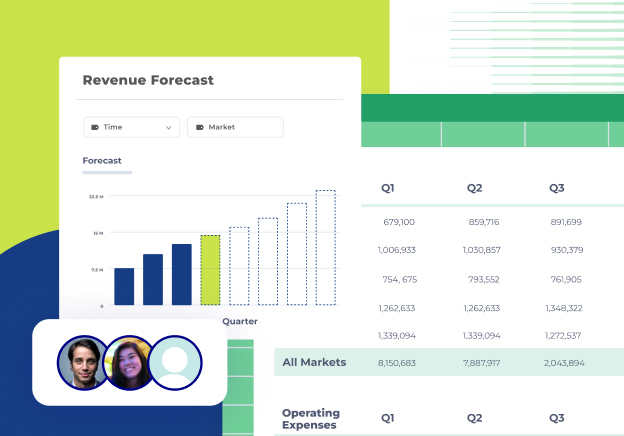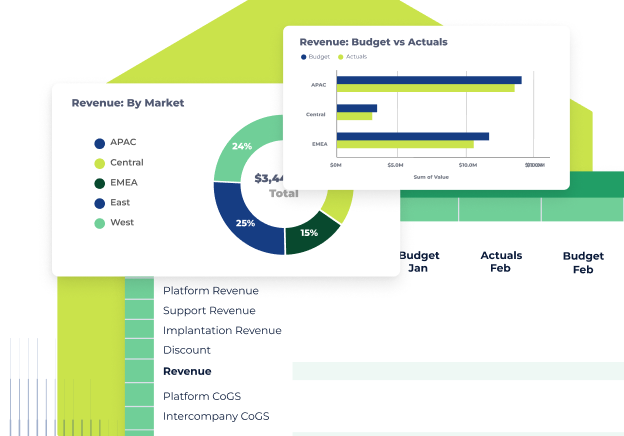5 Tactics to Keep Teams Strong, Resilient, and Ready
1️⃣ SHORTEN THE FEEDBACK LOOP
Many CFOs tell us that agility begins with speed to insight. Instead of relying solely on quarterly reviews or static board decks, they create daily, weekly, or monthly checkpoints that give them an early read on performance.
The value of these short cycles isn't just in spotting misses—it's in catching them early enough to act. If the business is overspending in one channel or falling behind on pipeline, the CFO can course-correct before the quarter is lost.
As one finance leader told us, "Small pivots, made quickly, add up to big results."
2️⃣ PRESSURE TEST THE PLAN
Planning is often treated as a one-time exercise: align assumptions, finalize the model, and present to the board. But the CFOs we hear from emphasize that planning should feel more like training.
That means preparing not only for the "what" but also the "what if." What if growth comes in faster than expected? What if hiring slows down? What if churn ticks up?
Building these scenarios gives teams muscle memory, so when real-world shifts happen, they already know their first three moves.
It's not about predicting the future—it's about rehearsing for it.
3️⃣ INVOLVE OPERATORS EARLY
Some of the best CFOs we talk to credit their success to involving other leaders well before the plan is finalized. Good plans don't come from spreadsheets alone—they come from real conversations with sales, marketing, and operations.
When GTM and ops leaders are brought in early, two things happen: finance gains richer input on what's realistic, and operators feel true ownership over the plan. The result is less friction later and stronger buy-in when adjustments are needed.
One CFO summed it up this way: "When finance works alone, we hand down numbers. When we plan with operators, we build strategy together."
4️⃣ NORMALIZE UPDATES
A plan that doesn't evolve is already wrong.
Reforecasting has historically been seen as a sign of failure, but today's finance leaders are reframing it as a strength. Regular updates show the business is paying attention, responding to data, and willing to make changes before risks escalate.
CFOs tell us the real win is cultural: when leadership normalizes updates, the rest of the company learns to see plans as living documents, not static rules. That mindset shift builds resilience far beyond finance.
5️⃣ TRAIN FOR DECISIONS, NOT PERFECTION
Finally, the most agile CFOs emphasize speed over flawless precision. They train their teams to say: "Here's what we know, and here's what we'd do today."
This approach keeps the business moving forward even when information is incomplete. It also sets a tone of adaptability—plans can (and should) evolve as new inputs arrive.
Perfect data may never come, but strong decision-making under uncertainty is what truly moves the business ahead.
A Closing Thought
Agility isn't about avoiding misses; it's about building the resilience to respond, adapt, and guide the business confidently through change.
The finance leaders who succeed in this environment aren't betting on perfect predictions. They're creating systems, habits, and cultures that allow their teams to pivot quickly without losing momentum.
In a world where change is constant, agility is the ultimate differentiator.
| 





.png)








.png)
.png?upscale=true&upscale=true&width=600&name=Email%20Header%20Customer%20newsletter%20%20V1%20-%20Left%20(25).png)